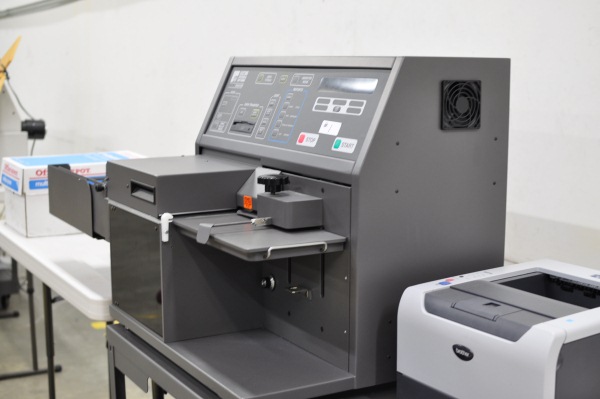For the first time ever in a general election, overseas civilians and members of the military no longer need to use envelopes and mail carriers to exercise their civic rights. This year, for North Carolinians abroad, casting an absentee ballot is as simple as sending an email.
OK, so maybe it isn’t quite that simple. However, according to Cherie Poucher, Director of the Wake County Board of Elections, the new process — done almost entirely online — is much more efficient and reliable than the mail-in method used in previous years.
Prospective voters begin the process by filling out an online federal application, known as a postcard application. Poucher said it typically takes her less than two days to process the federal postcard applications. In fact, there are two staff members whose sole duty is to manage those.
Once that application is approved, seven pages are sent to the voter electronically, including instructions, an affirmation, an absentee ballot sheet, and a privacy disclaimer. Voters then simply print the documents, fill them out, scan them back into the computer and send it all back to Poucher — or the state board, depending on whether they reside in Wake County or not.
Once the documents are received, Poucher prints them out, logs them into the system, and emails the voter right back to let them know that the process went smoothly, and that the vote has been cast.
The decision to allow the submission of absentee ballots electronically is one made by each individual state. North Carolina is one of 29 states that allows this electronic submission process, according to information available through the Federal Voting Assistance Program‘s website.
This non-partisan organization is tasked with ensuring that every service member is aware of their right to vote, and providing the resources to get them all set to do so. So when citizens living abroad register to vote through the Wake County’s Board of Election’s site, FVAP’s site is where they are redirected.
“FVAP strives to ensure that every absent military and overseas citizen voter has the tools and resources to receive, cast, and return an absentee ballot and have it counted – regardless of who they vote for,” FVAP Acting Director Pam Mitchell stated in an email.
FVAP works to give those abroad as much support as possible, whether they’re in Afghanistan or at sea, according to Mitchell. They even provide online wizards to guide voters through filling out the necessary forms. Then, it’s up to the voter to get the documents to the right place. And this “right place” is clearly outlined on the website through individual voting guidelines for each state.
 [/media-credit]
[/media-credit]A ballot counting machine.
While the process of submitting a ballot electronically for those overseas was in place for the primary held in May of this year, this is the first time duplicates are being allowed. “Duplicating” ballots is simply the process of transferring absentee ballots received via email onto traditional ballots. This is done so they can be run through the machines. Wake County is actually one of 10 or so counties testing duplicates as a pilot program. Prior to duplication, all electronic absentee ballots had to be hand counted — a tedious and time-consuming task, Poucher said.
Voters interested in sticking with the traditional mail-in ballot are more than welcome to continue to do so. However, Poucher said she feels the ease with which this new online system of absentee ballots can be cast will cause an increase in participation from Americans overseas.
Poucher gave the example of a mail plane on its way to Afghanistan that crashed recently. If there were absentee ballots en route on that plane, they would have to be reissued, and it would take that much longer to get the ballots to the proper authorities. This could prevent U.S. citizens from completing their ballots in time, thus preventing them from casting their vote.
“Fortunately, no matter where they are, they have access to the internet,” Poucher said.
Those military or overseas voters wishing to cast absentee ballots for North Carolina electronically can register and request a ballot as late as Nov. 5. All electronic submissions, whether via email or fax, must be returned by Nov. 6.
